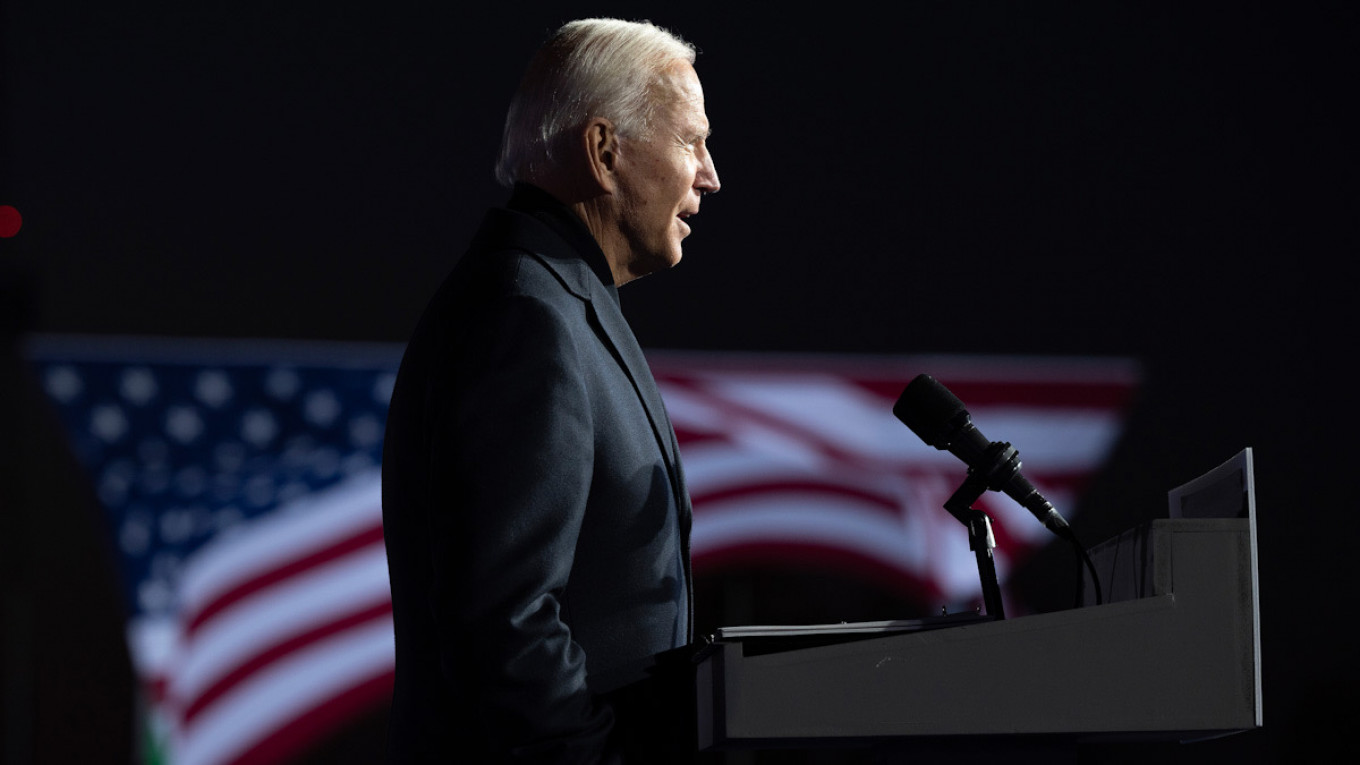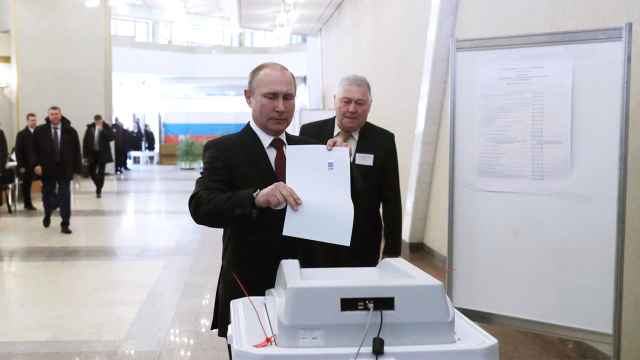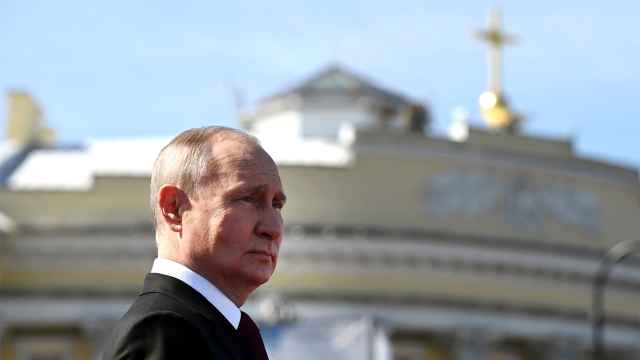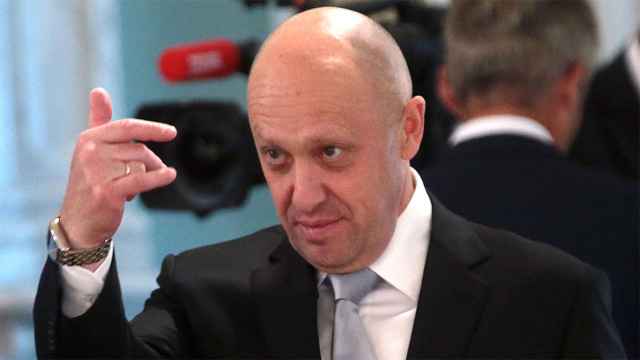Ask analysts in Russia about the U.S. presidential race, and you’re unlikely to detect much love for either candidate or much hope for significant progress in Russian-American relations.
“I don’t believe anybody expects any change regardless of who will win,” Fyodor Lukyanov says. Andrey Kortunov concurs, ruling out “any significant impact on relations between Washington and Moscow.”
That may surprise stateside readers, for whom the perceived difference between President Donald Trump and former Vice President Joe Biden on Russia might as well be that between night and day.
As Kortunov admits, it’s not that “there is no difference at all between” the two candidates. Instead, the problem is that the popular perception of the two candidates — Trump as invariably deferential to Putin, be it out of sympathy for Russia and its president, Vladimir Putin, or because of a financial or other questionable relationship with Moscow, and Biden as the hawk “Putin doesn’t want … to be president” because “I know them [the Russians], and they know me” — belies some critical similarities and differences between the Trump administration’s Russia policy and that of a Biden administration as I envision it.
Many U.S. debates on Russia come down to who or what appears tougher on it. In this respect, Moscow can expect essentially more of the same when it comes to punishment of its international behavior — materially, anyway, with Biden certain to condemn wrongdoing by Russia more loudly than Trump has.
Trump’s time in office has seen Russia repeatedly hit with new penalties for its actions abroad, not only by Congress, with its passage of the Countering America’s Adversaries Through Sanctions Act (CAATSA) in 2017, but also by the executive branch, where the Treasury and State Departments have used executive orders as well as sanctions laws like CAATSA and the Magnitsky Act to respond to Kremlin transgressions new and old.
The conventional wisdom that Congress has since January 2017 been alone in pushing for, and pushing through, new Russia sanctions is an oversimplification, and congressional pressure cannot explain all such measures taken by the executive branch in that time.
Still, under a Biden administration, getting out of the driver’s seat on Russia would probably feel safe for hitherto vocal members of Congress. The bipartisan consensus in support of a tough-on-Russia policy — to which Biden broadly subscribes, as do progressive Democrats who have broken with Biden on the Middle East and other foreign policy matters — means that partisans aside, Biden would find in Congress a partner in making Russia policy, not the antagonist of Trump’s presidency, especially his first two years in office.
Crucially, a Biden presidency promises a markedly harder line from Washington on Russia’s internal conduct.
Biden’s “belie[f] that morality must play a role in U.S. foreign policy, even when inconvenient,” as described by Obama administration official and former U.S. Ambassador to Russia Michael McFaul, bodes ill for Moscow.
What has effectively been a four-year break from high-level U.S. criticism of its human rights record, and to a lesser extent U.S. engagement in the former Soviet Union, would end with Biden’s inauguration as president. On a 2011 visit to Russia as vice president, Biden famously met with opposition figures, “offer[ing] assurances that their plight would not be forgotten amid Washington's efforts to continue to improve relations with Moscow” and even broaching the sensitive subject of then-Prime Minister Putin’s political future to caution against his return to the presidency.
Since leaving office, Biden has retained an interest in the struggle of Kremlin critics at home as well as Russia’s subversive activities abroad, including in its neighborhood. His lofty rhetoric on developments in the post-Soviet space, from Ukraine’s post-revolutionary difficulties to Belarus’s post-election crisis, recalls President George W. Bush’s ‘freedom agenda’ in its embrace of America’s exceptionalism and responsibility to “champion liberty and democracy” around the world.
It speaks to a values-based perspective that Russia would find working with difficult given the hands-on U.S. role in the region to which it lends itself and relative to Trump’s transparently transactional approach to foreign policy. The involvement of allies, with which Biden has signaled he would work extremely closely, would act as a force multiplier that further complicates life for Moscow, especially with Europe’s patience with Russia fading as a result of the Alexey Navalny affair.
Russia, then, would seem to have something to lose from a Biden presidency.
Yet much evidence suggests that Biden’s Russia policy would be measured. True, Biden and co. may wish to make Russia suffer after the events of 2016, which not only are seen to have contributed to their nominee’s defeat but also occurred on their watch. Ben Rhodes’s 2018 memoirs recall the unconcealed “incredulity” with which an “animated” Biden reacted to a January 2017 intelligence briefing on Russia’s election interference — a far cry from the Biden who in 2010 “adamant[ly]” opposed taking down a U.S. network of Russian spies out of fear that it “would blow up” U.S.–Russia relations, according to the 2014 memoirs of fellow Obama administration official Robert Gates.
Even so, all signs point to a Biden administration pursuing a Russia policy that combines cooperation and confrontation.
In January 2020, Biden pledged to not only “impose real costs on Russia” for its transgressions at home and abroad but also “renew [the U.S.] commitment to arms control for a new era,” such as by extending New START, notes he sounded in an August 2016 article endorsing “a [Russia] policy that combines the urgent need for deterrence … with the prudent pursuit of tactical cooperation and strategic stability.”
“[P]rogress in international affairs,” he wrote at the time, “so often demands working with those with whom we do not see eye to eye,” a philosophy reflected in a December 2017 piece insisting that Moscow and Washington “keep talking,” whatever happens. Mike Carpenter, a former Pentagon official close to the former vice president, has said that “Biden’s approach to Russia would involve supporting a dialogue” on select issues “from a position of strength,” suggesting that four years later, Biden still favors “cooperation with Russia where our interests overlap,” from arms control to the Middle East.
Biden’s support for restoring and, in fact, reinforcing the U.S.–Russia arms control architecture promises Russia at least one shift for the better, for the simple reason that it is genuine. Trump, a supporter of nuclear modernization who has been surrounded and cheered on by ardent arms control skeptics, has presided over that architecture’s erosion, pulling the U.S. out of the INF and Open Skies treaties and conducting bad-faith negotiations with Russia to run out the clock on New START, which Biden shepherded through the Senate as vice president and which expires in February 2021. A Biden presidency would bring Russia a serious negotiating partner in the area of arms control and ensure that the continued contraction of the two countries’ shared agenda does not claim as a victim that historically reliable source of cooperation.
Biden may find striking this balance difficult, especially in the first months of his presidency. His administration would be expected to retaliate against three election cycles’ worth of meddling by Russia if not also its alleged sponsorship of Taliban attacks on U.S. troops in Afghanistan, which Biden and co. have repeatedly referenced on the campaign trail and in debates, and to convey to Putin that he can no longer “get away with anything.”
The challenge would be to make Moscow acutely aware of the change in management at 1600 Pennsylvania Avenue without inflicting so much pain or humiliation on Moscow that it precludes the two countries from enjoying a functioning relationship in the years that follow — quite a needle to thread.
Provided that Moscow officialdom means what it says about wanting a better relationship with Washington, Russia should want Biden to win.
The longer Trump remains in office, the more toxic a brand Russia will become in the U.S., the more traction Washington’s more extreme proposals for countering Russia will gain, and the longer Moscow will have to wait for a U.S. administration willing and able to engage in more than limited cooperation with Russia to come along. If nothing else, Washington’s behavior would be significantly more predictable under Biden, a change that even Moscow may welcome after four long years dealing with Trump.
The author has donated to the Joe Biden campaign.
A Message from The Moscow Times:
Dear readers,
We are facing unprecedented challenges. Russia's Prosecutor General's Office has designated The Moscow Times as an "undesirable" organization, criminalizing our work and putting our staff at risk of prosecution. This follows our earlier unjust labeling as a "foreign agent."
These actions are direct attempts to silence independent journalism in Russia. The authorities claim our work "discredits the decisions of the Russian leadership." We see things differently: we strive to provide accurate, unbiased reporting on Russia.
We, the journalists of The Moscow Times, refuse to be silenced. But to continue our work, we need your help.
Your support, no matter how small, makes a world of difference. If you can, please support us monthly starting from just $2. It's quick to set up, and every contribution makes a significant impact.
By supporting The Moscow Times, you're defending open, independent journalism in the face of repression. Thank you for standing with us.
Remind me later.








